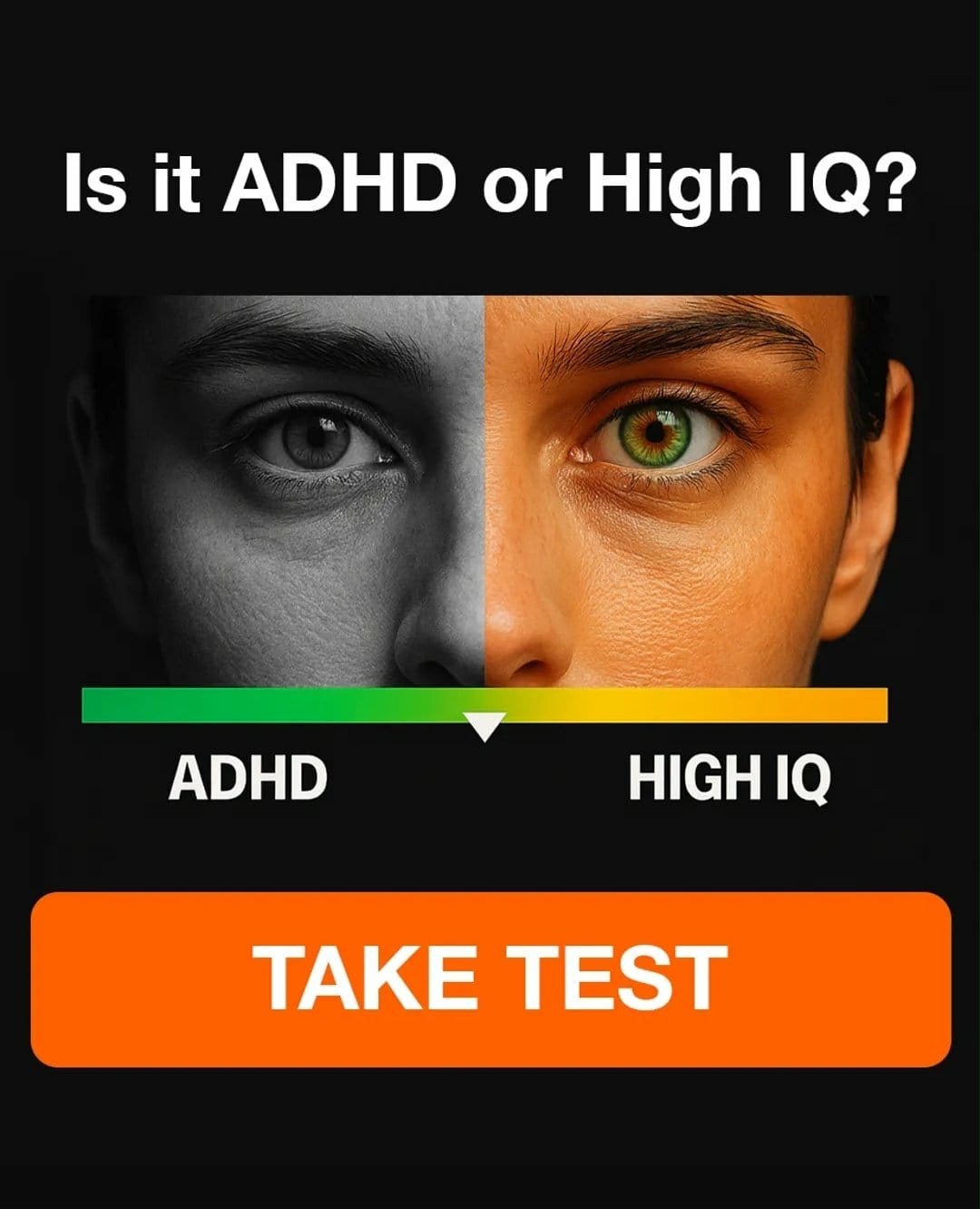I’m a white gay Muslim convert and I’m finally at peace
It’s 6am on December 25, and I’ve just finished Fajr prayer, the first prayer of the day. I hear the quiet scurries of my mum downstairs beginning to prep the food for Christmas Day. I sit in peaceful silence in my room like I do every time after praying. It’s my time between me and God.
I look around my room and above my desk, I see pictures of me at 2023 Manchester Pride sporting a T-shirt with ‘Queer, Muslim & Proud’ written on the front. On that morning, I felt squarely at the intersection of being a convert, gay and from a white family. And I felt peace – this is my life. But that’s not to say I never feel like an outsider.
I grew up in Scotland, where the expectations of what sort of man I should be and who I should find attractive – particularly from my late father – were rigid.
I came out as gay when I was 13, which was far earlier than most of my peers. I’d always known I was different and my parents certainly had their suspicions – my mum even bought me a doll whose hair changed colour when I was five.
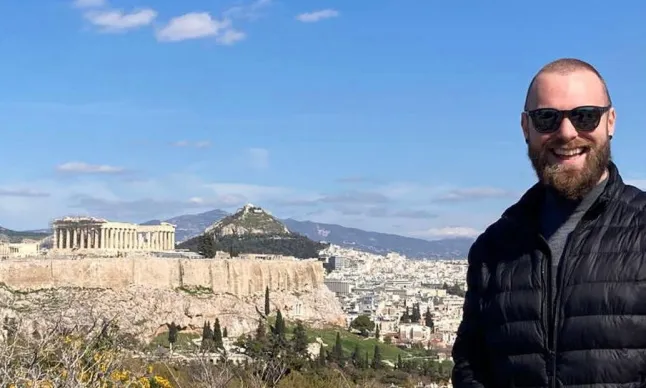
Faith, on the other hand, was always more complicated. I wasn’t raised religious, but my family were culturally Protestant – more likely to attend funerals than church services.
Still, I felt there was something more. As a child, I was obsessed with ancient mythology and I remember flipping through books on Greek gods, Roman temples, and sacred rites.
Then everything changed when I moved to Athens at 27 years old. I was there for my postgraduate studies in archaeology, trailing through ruins of Ottoman-era mosques and researching the layered histories of northern Greece. And I was in Thrace, on the shores of northern Greece when I first heard the adhan – the call to prayer echoing from a well-worn minaret (slender tower of a mosque).
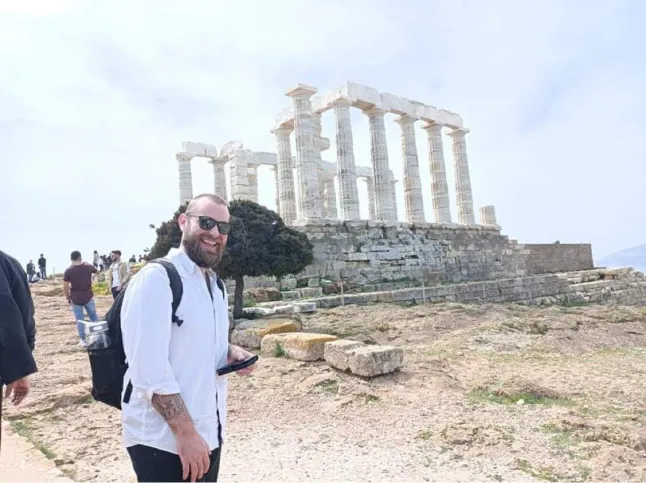
The sound is magical. It’s the signing of affirmations of God’s supremacy and the declaration of faith (Shahada). If you haven’t heard it, it’s both rapturous and awe-inspiring.
The sound hit something deep in me. It was less like learning something new and more like remembering something old. A truth I had forgotten. From that moment on, I began exploring Islam – not academically, but spiritually.
I read the Qur’an, watched lectures on Islam, and reached out to my supportive Muslim friends about what to do, how to pray, how could I best the best Muslim possible?
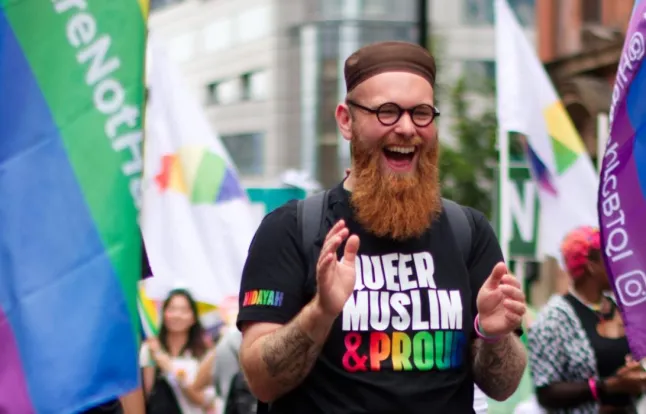
I’d probably lightly irritated them with all my questions, but I was drawn to the embodied nature of the faith, especially salah. This is the physical act of prayer – bowing, prostrating, aligning your body and heart toward God – which all resonated deeply within me.
I can’t put my finger on why exactly, but there was something about prayer being the physical communication with the divine that really resonated with me.
Then, in 2022, aged 28, I formally converted to Islam – quietly and privately. I was invited to a house in Leeds by a good friend and Imam, and there, in front of my friend’s family, I spoke my shahada (declaration of faith).
The experience was so powerful, and I’ll never forget it – it floored me.
In some queer Muslim spaces, I was worried my whiteness would raise eyebrows
Surprisingly, my parents handled my conversion well, with Mum joking: ‘Well, at least it wasn’t Scientology.’ In a way, their nonchalance was a blessing – it let me be. But once I began engaging more publicly with my faith, I was confronted by a hard truth: in many Islamic spaces, being gay was unthinkable. Haram. Shameful. A contradiction.
Muftis – Muslim legal experts – gave talks on how homosexuality was sinful and how it should be avoided. But categorically, I just didn’t agree! And on hearing it I was angry.
I was told by many online that I couldn’t be both gay and Muslim, and this made me even more emboldened to prove this wrong. From my perspective, I knew who I was and that was fine; it was them who were the problem. At this point, I had no queer Muslim friends, so I desperately sought community.
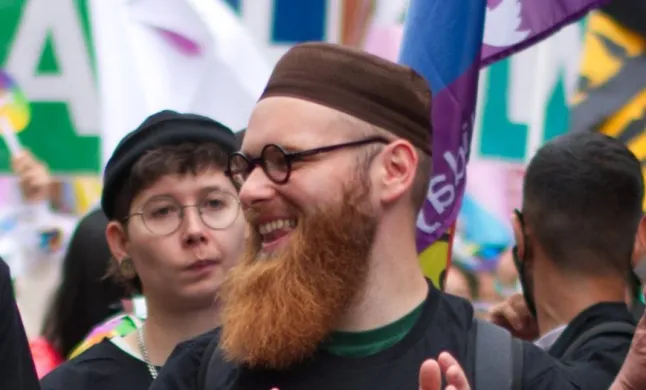
I attended local Islamic events during Ramadan, but as a white convert, I always felt peripheral.
Over time, I noticed a recurring challenge: in a religion predominantly practiced by global majority communities, I felt out of place. At best, I was overlooked, and at worst, it was like I was a spiritual coloniser or cultural fetishist.
In LGBTQ+ spaces, I found some solace. But even there, Islam was often treated with suspicion. Every queer group I had gone to had been about partying or drinking, and not a thought had been given, from my perspective, about those who didn’t do this, particularly because of their faith.
Worse still, in some queer Muslim spaces, I was worried my whiteness would raise eyebrows.
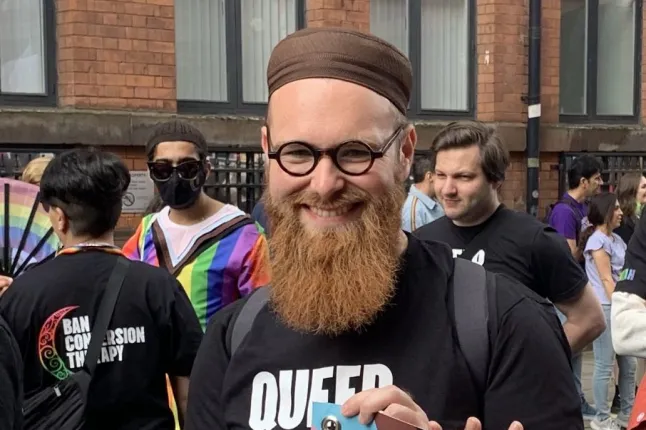
I quickly realised that many LGBTQ+ people from Muslim backgrounds had distanced themselves from religion altogether, often rejecting it outright as a form of resistance or survival. Once again, I found myself the odd one out – someone who had come toward the faith rather than away from it.
Eventually, in late 2022, my ongoing search for belonging led me to Hidayah, which is an LGBTQ+ organisation by and for queer Muslims. At its very core, it argues that sexuality does not make you haram, but a beautiful expression of divine diversity.
It was there, with others who lived at the same intersection of LGBTQ+ identity and Islam, that I finally felt at home.
And for the first time, I experienced a real sense of community. Because Hidayah is faith-based as opposed to a purely LGBTQ+ organisation, I didn’t feel like the token white convert in the corner of the virtual room. I felt welcomed and seen.
Over time, I became more involved, starting with volunteering as a wellbeing officer, signposting service users to the resources they needed, before becoming the Chair this year, which still feels surreal.
I hear stories like mine from people all over the world – stories of isolation, faith rediscovered, courage, and doubt. And I remind them: you can be both.
You are both. Fully. Proudly.
Of course, life is still full of awkward in-betweens. In most professional settings, I’m still ‘the secret Muslim’, as I’m not very good at praying at work.
Now, I can say with certainty that my life is richer for this path. Funnily enough, Hidayah has given me so much more meaning, and even a mission to let others like me, other queer Muslims know that they are not alone and that they are loved and welcomed.
I’ve forged a faith that is deeply personal, fiercely inclusive, and constantly evolving.
Most importantly, I’ve helped and am dedicated to helping others see that being LGBTQ+ and Muslim is not a contradiction, it’s a calling.

